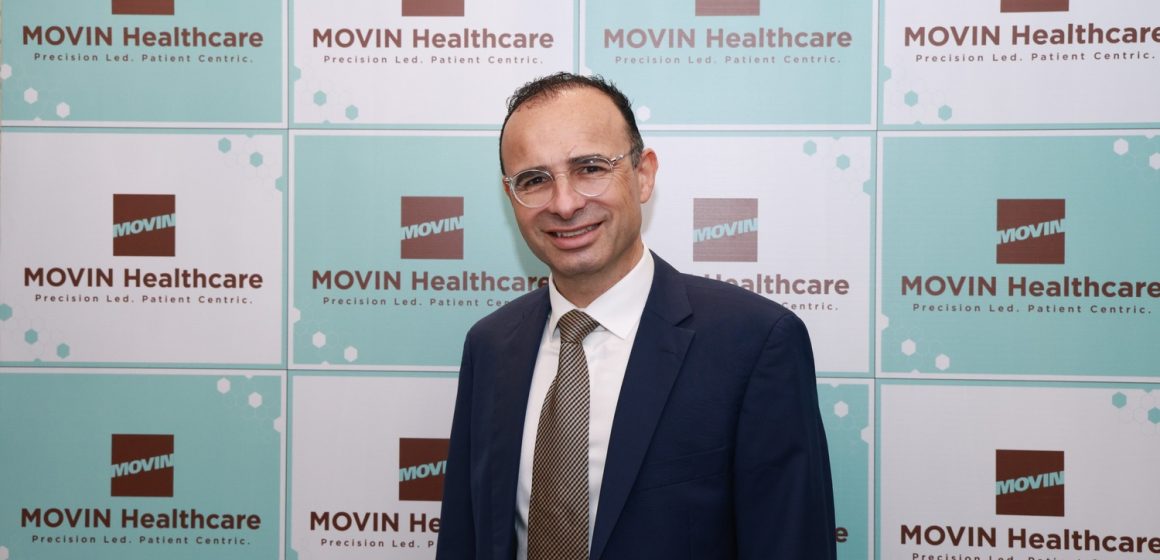One of India’s fastest‑growing logistics players says this strategic expansion aims to meet the critical requirements of India’s healthcare logistics across pharmaceuticals, MedTech, diagnostics, and laboratories.
More than three years after its founding, MOVIN Express has forayed into the highly specialised healthcare logistics sector with the launch of its healthcare arm, MOVIN Healthcare. One of India’s fastest‑growing logistics players says this strategic expansion seeks to address the critical needs of the country’s growing healthcare logistics across the pharmaceutical, MedTech, diagnostics, and laboratory domains.
And the available data firmly backs this claim. India’s healthcare express logistics market, estimated at between $5.5-7.5 billion, represents roughly 0.9-1.2 per cent of the country’s $638 billion healthcare industry. It is this rapidly expanding segment that the Gurugram‑based business‑to‑business delivery company, a joint venture between InterGlobe Enterprises and UPS, is targeting through MOVIN Healthcare.
Grégory Goba‑Blé, Director of MOVIN Express and Head of UPS India, told INFRASTRUCTURE TODAY that the company spent several months planning the vertical for the swift and reliable delivery of healthcare essentials.
“MOVIN Healthcare will ensure end‑to‑end deliveries through specialised, precision‑engineered temperature‑controlled packaging, with every shipment securely handled and monitored in real time.”
The temperature‑controlled packaging is capable of sustaining refrigerated (2 to 8°C), ambient‑controlled (15 to 25°C), and dry ice frozen (‑80 to ‑20°C) shipments, critical for vaccines, pharmaceuticals, and clinical trial materials. Monitoring will be conducted round‑the‑clock by a dedicated control centre. Priority handling will be provided for all healthcare shipments, along with comprehensive carrier insurance for complete protection.
Goba‑Blé especially highlighted the next flight out (NFO) service for expeditious delivery of time‑critical or emergency shipments.
“The NFO service will guarantee time‑bound delivery of medical shipments with agility, reliability, and quality. Each consignment will be managed end‑to‑end by skilled, dedicated teams to ensure the highest standards of care and precision.”
In the days ahead, specialised resources and trained customer support teams will drive the handling of time‑critical shipments and deployment of advanced packaging solutions for temperature‑sensitive products. The initial rollout will cover 50 strategic markets, with nationwide expansion planned over time.
Strength in Synergy
MOVIN Healthcare combines UPS’s global logistics expertise with InterGlobe’s in‑depth market knowledge. While Goba‑Blé declined to provide a specific investment figure, he emphasised that the commitment spans technology precision, infrastructure, and workforce training.
“We have established a specialised vertical to address the stringent compliance standards and temperature‑control challenges unique to India’s healthcare sector. Backed by MOVIN’s agile local network, strategic investments in infrastructure, skilled workforce training, and advanced monitoring technologies, we are reinforcing our long‑term vision to be the most trusted logistics partner for India’s rapidly expanding healthcare industry.”
MOVIN Express is also leveraging its technology stack, one of the largest in Indian logistics, to ensure operational reliability.
“Our technology stack will be deployed with tailored adjustments to meet the unique requirements of the healthcare sector,” added Goba‑Blé.
The MOVIN quality assurance framework upholds strict safety protocols, integrating corrective and preventive actions (CAPA) with transparent incident reporting to build enhanced trust and accountability among customers.
After one of its strongest Diwali seasons since inception, MOVIN Express is closing 2025 with a launch that could disrupt the healthcare logistics segment. The need for advanced delivery options has been evident since India’s ambitious vaccine programme in the aftermath of the COVID‑19 pandemic in 2020.
– Manish Pant


